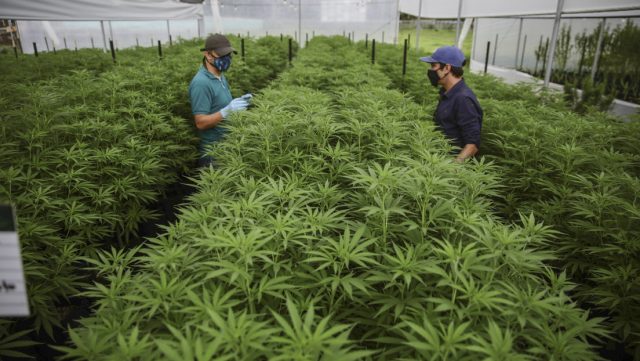On October 4, the First Commission of the Colombian House of Representatives approved a bill to legalize recreational cannabis, whose discussion must now go to plenary debate. If endorsed, Colombia would become one of the few countries in the world to have decriminalized the recreational use of this substance.
In the past, two similar proposals were already endorsed in the country’s First Commission and approved in the first debate, later they were archived and not discussed again in Congress, so the recently obtained approval should not be considered as the decisive step towards the legalization of cannabis, but as the first in a series of discussions.
In recent years, different countries have legalized and regularized the use of marijuana for recreational use. According to data released in the reform presented by Congressman Carlos Ardila, in the American continent only Canada and Uruguay, and partially the US and Mexico, have authorized marijuana for recreational purposes; while in Argentina, Chile, Colombia, Ecuador, Jamaica, Panama, Paraguay, Peru and Puerto Rico, the use of cannabis is only allowed for medicinal purposes. In the rest of the region, the substance is considered illegal.
In Colombia, Law 30, approved in 1986, penalized and prohibited the possession, consumption, production and financing of narcotic substances, including marijuana, and because of that law, any type of use of cannabis was restricted for years, reports RT.
The cannabis industry in figures
This provision changed significantly in 2016, when through Law 1787, the production, transformation and use of cannabis and its derivatives for medicinal and scientific purposes was allowed. The reform received a major boost in July 2021, when, in the context of the coronavirus pandemic, Colombia issued Decree 811, which authorizes the export of dried marijuana flowers for the benefit of the national pharmaceutical industry.
From January 2017 to August 2022, the authorities of the Ministry of Justice and Law have granted 2,419 licenses for the cultivation of medicinal cannabis, which has had a year-on-year increase of 278% from 2020 to 2021. Meanwhile, ProColombia, a government agency which promotes international business, calculates that by 2030 marijuana exports will reach a value of 1,733 million dollars, an amount higher than that of flowers, the second most important non-mining-energy exports of the country.
The bill, approved with 31 votes in favor and only one against, seeks to authorize the use of cannabis beyond the health sector, towards free consumption among people of legal age, but also proposes creating a control system that allows the territories to decree and collect taxes for activities related to the use of cannabis, to invest only in three sectors: health, education and agriculture.
“We are decentralizing resources so that the territorial entities solve local problems. We cannot be oblivious to the negative impacts caused by the cannabis industry», Ardila wrote on his Twitter account.
It should be noted that Colombia is the second country with the highest Organized Crime Index, with 7.67 points, only behind the Democratic Republic of the Congo (7.75) and above countries such as Myanmar (7.59) and Mexico. (7.57).What does the population think about this matter?
Despite the furor in the legislative body in favor of the recreational use of cannabis, the population does not seem to support the legalization of the use of this substance.
A survey by the firm Invamer revealed that in July 2022, 49% of Colombians were against legalizing the sale of recreational marijuana, a trend that, however, has been on the decline since August 2021, when the number of people that rejected the idea was located at 54%, according to data from the pollster. Despite this decline, citizen approval remains below the rejection line, with 44% accepting the idea according to a survey last July.
Beyond the ‘social rejection’, the truth is that marijuana use is high in Colombia. According to the most recent data from the United Nations Office on Drugs and Crime, cannabis is the most consumed substance in Colombia, having been used by 56.1% of patients in treatment.
The reform of the liberal politician Ardila is the second under discussion in Congress. On September 14, the First Commission also approved a bill, proposed by the representative of the Liberal Party Juan Carlos Losada, which legalizes the use of recreational cannabis in adults, through the reform of article 49 of the Constitution of the country. Ardila’s proposal, in addition to that article, also seeks to modify articles 287 and 317, which deal with the matter of the administration of territorial resources and control.


